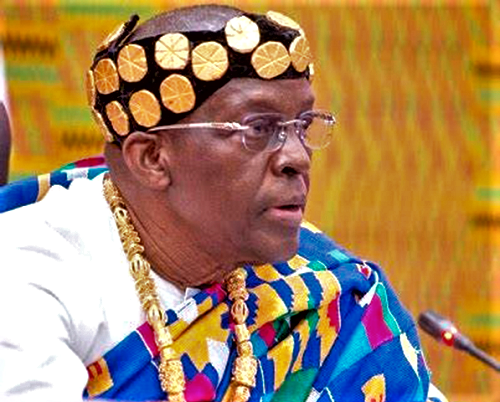
Should Speaker take part in debates before House?
Should Mr Speaker take part in debates before the House? Ordinarily, Standing Order 90 conclusively answers this question thus: “The Speaker shall not take part in any debate before the House.”
But does Standing Order 90 provide all the answers? The orders are meant to be read, considered as a whole and in tandem with the 1992 Constitution.
Advertisement
So the Standing Order 90 might not, after all, be absolute. Remember Mr Speaker has Standing Orders Five and Six, as well as precedents and conventions of the House on his side.
Order Five reads, “In case of doubt, these Orders shall be interpreted by Mr Speaker as he deems fit.”
Order Six reads, “In all cases not provided in these Orders, Mr Speaker shall make provision as he deems fit.”
These are enormous powers granted to the Speaker. If Mr Speaker can interpret the Standing Orders and his interpretation is final and if Mr
Speaker can make provision for cases not provided in the Standing Orders as he deems fit, then his influence over the House is unambiguously clear.
Hung
The problem of the “hung” or “stalemate” Eighth Parliament is that it is using unsuitable Standing Orders to run a remarkably different type of Parliament.
For instance, in a House made up of equal numbers, 137/137, majority and minority groups have been installed. Why? There are majority and minority leaders in the House.
Actually, the leader of the party in power could have been designated “Leader of Government Business” and not Majority Leader; a title he is not entitled to.
A decision taken by the House when Mr Speaker presided could be overturned by his deputy!
A deputy speaker presiding as Speaker could abandon the Speaker’s seat to go and constitute a quorum of the House or vote on a motion he has admitted for debate.
In its present state, why should almost all parliamentary committees be chaired by the party in government?
The Second Deputy Speaker who should not come from the same party as the First Deputy Speaker has been allowed to join and work with the First Deputy Speaker’s party and no action is taken against him.
Because of the seeming confusion in the House, soldiers could be deployed to Parliament without the consent of the Speaker or the clerk to Parliament.
Mr Speaker admits a motion and it is debated. Instead of putting the question for decision to be taken by the House, he decides to rule on it!
The Leader of Government Business in Parliament could get up and chastise Mr Speaker on the Floor and get off scot-free.
This unfortunate behaviour is often repeated in public and the media. Is it intended to show disrespect for the Speaker?
Clearly, I put this down, partly in the absence of a well-structured, suitable and appropriate Standing Orders to guide, direct and regulate the affairs and conduct of Parliament.
Observers
Some observers think there is a lot of confusion in Parliament! The source of the confusion is clear.
The House has no appropriate, suitable and workable Standing Orders to guide it and regulate its procedures and activities.
Advertisement
So actions and decisions are taken in a bizarre and unconventional manner. The prevailing confusion would have been averted if the House had been patient and proactive to amend or rewrite its Standing Orders first before beginning any serious work.
Some members have made it their business to always accuse the Speaker of taking part in debates before the House.
But is the Speaker totally barred from taking part in debates before the House? The argument is that he is not an MP so he cannot take part in debates.
But it is the same Standing Orders which give him the controlling powers to comment and re-direct debates in the House.
Advertisement
Mr Speaker can use the intervention powers vested in him to “take part in debates before the House”, so to speak.
He admits motions for debate. What about if he refuses to admit them, and this he does occasionally!
Mr Speaker can intervene to guide, comment, re-direct and regulate debates on the Floor of the House and yet he is not an MP.
If the Speaker corrects or draws the attention of an MP to wrong and unparliamentary debating procedure, do we take it that he is taking part in a debate?
Advertisement
Taking part in a debate is a right exercised by MPs, but this right is exercised at the discretion and instance of the Speaker who is not an MP.
The Speaker, in the name of guiding and correcting an MP, can make substantial contribution to the debate before the House.
Mr Speaker determines the trend and direction of debates in the House. Nobody should fool himself or be naïve to think that, in practical terms, Mr Speaker does not take part in debates of the House. I think he does.
In the Fourth Republican Parliaments, Speakers have used their intervention and guiding powers many times to take part in debates, in fact, to the extent that sometimes, they contribute more than the MP.
Justice Annan did it and Peter Ala Adjetey did it even more.
Who says Speakers do not have a way of taking part in debates before the House? They do, and who can stop them? Worst of all, by the powers vested in them by the Standing Orders, they can adjourn, stifle and truncate a debate!
If in doubt, you can check the Hansard.
The writer is the former MP for Hohoe South.




